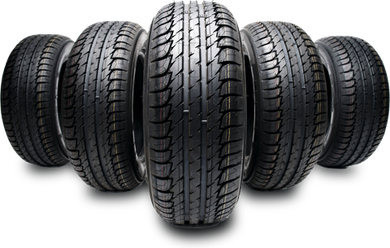Tire Service: Understanding Tire Stress Tracking Equipments
Recognizing Tire Pressure Tracking Solutions (TPMS) is an important facet of keeping ideal vehicle performance and safety when driving. With developments in automotive innovation, TPMS has come to be a common function in contemporary automobiles, giving real-time information on tire pressure degrees. Delving deeper right into the details of TPMS, one can reveal the numerous parts that make up this system and the importance of each in ensuring exact surveillance. From straight to indirect TPMS systems, the landscape of tire stress surveillance is diverse, each with its unique collection of factors to consider and benefits. Keep tuned to untangle the complexities of TPMS, from maintenance tips to the obvious benefits of maintaining your tires correctly inflated. tires morris il.

Importance of TPMS
The value of Tire Stress Monitoring Solutions (TPMS) hinges on their ability to improve lorry safety and efficiency with real-time tracking of tire pressure levels. Keeping the proper tire pressure is crucial for ensuring ideal handling, braking, and general security of a vehicle. TPMS supplies motorists with instant feedback on any overinflated or underinflated tires, permitting prompt modifications to be made.
Parts of TPMS
Sensing units are normally situated in the tire valve stem or connected to the wheel assembly, where they determine tire pressure and send information to the control component. Some advanced TPMS versions additionally display the actual tire pressure readings for each tire, offering chauffeurs with real-time info to make certain optimal tire performance and security. By keeping track of tire pressure constantly, TPMS helps protect against mishaps, minimizes tire wear, and enhances fuel effectiveness, making it a critical part for automobile safety and security and performance. mopar tire service specials.
Kinds Of TPMS

On the other hand, indirect TPMS depends on the vehicle's wheel rate sensors to keep an eye on tire stress. This system finds underinflation by contrasting the rotational speeds of the wheels. Indirect TPMS is much less costly than straight TPMS, as it utilizes existing sensors within the vehicle.
While direct TPMS uses extra accurate analyses, indirect TPMS is easier in layout and generally calls for less maintenance. Both systems have their advantages and limitations, and the option in between them frequently depends upon factors such as price, automobile make, and individual preference. Understanding the distinctions in between these 2 sorts of TPMS can help vehicle proprietors make educated decisions pertaining to tire upkeep and safety.
TPMS Maintenance Tips
Efficient upkeep of TPMS is vital for ensuring ideal efficiency and security of your lorry. Consistently examining the TPMS sensors for any type of damages or rust is crucial. Guarantee that the sensing units are free and clean from particles that might hinder their functioning. Furthermore, it is recommended to inspect the sensing unit batteries occasionally and change them as required to ensure exact analyses. Conduct routine checks on the tire pressure degrees and contrast them with the TPMS readings to ensure they are constant. Alter the system complying with the supplier's guidelines if there are any discrepancies. In addition, during tire rotation or substitute, make certain that anchor the TPMS parts are taken care of thoroughly to protect against any kind of possible damage. Last but not least, if the TPMS advising light brightens on the control panel, address the concern without delay by examining the tire stress and the total system for any kind of faults. By adhering to these upkeep suggestions, you can extend the life-span of your TPMS and enhance the safety and security of your driving experience.
Benefits of Appropriate Tire Stress
Maintaining appropriate tire pressure, as stressed in TPMS Maintenance Tips, is vital for enjoying the numerous advantages linked with ideal tire pressure degrees. Among the main advantages of keeping the correct tire pressure is enhanced fuel efficiency. When tires are properly blown up, there is less moving resistance, causing far better fuel economic situation. In addition, proper tire pressure ensures also tire wear, extending the life-span of the tires and advertising much safer driving problems. With the ideal tire pressure, lorries additionally have better handling and grip, especially in unfavorable weather condition conditions. This can enhance overall driving efficiency and safety for the motorist and guests. In addition, maintaining optimal tire stress can add to a smoother and a lot more comfortable trip by decreasing resonances and sound triggered by underinflated tires. To conclude, the benefits of correct tire stress surpass simply tire durability; they include enhanced fuel performance, boosted security, far better automobile efficiency, and overall driving comfort.
Conclusion
In final thought, comprehending tire stress tracking systems (TPMS) is crucial for maintaining optimal tire stress and guaranteeing lorry safety. By recognizing the relevance of TPMS, recognizing with its components, knowing the different types offered, adhering to proper maintenance pointers, and recognizing the advantages of maintaining correct tire pressure, drivers can improve their driving experience and lengthen the lifespan of their tires. Appropriate tire pressure is crucial to reliable and secure car procedure.

Comments on “Cost Effective Discount Tires Morris IL: Unequalled Rates, Quality Ensured”